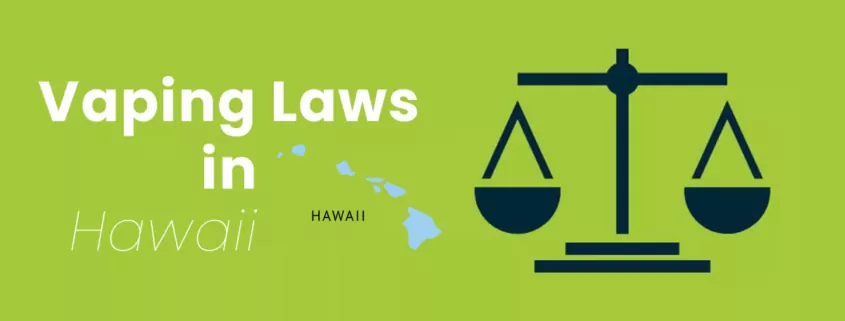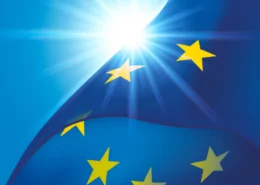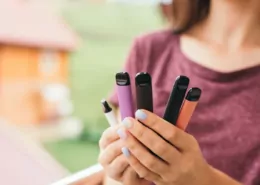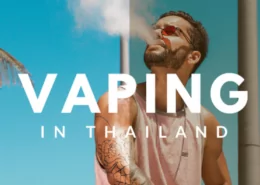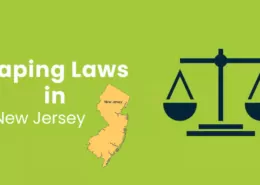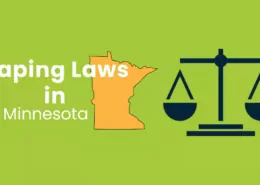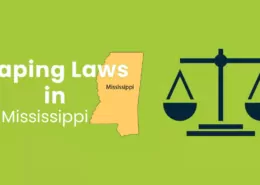Vaping Laws in Hawaii 2025 – What Vapers Need to Know
A comprehensive guide to Hawaii’s strict 2025 vaping regulations, including age 21 law, flavor ban proposals, taxation, public use prohibitions, and recent enforcement actions.
Known for its breathtaking natural beauty, unique Polynesian culture, and status as a world-renowned vacation destination, Hawaii also presents a complex environment when it comes to vaping. The picture isn’t as clear as its turquoise waters. Hawaii has established itself as a state with some of the toughest vaping regulations in the United States. From pioneering age restrictions to firm measures against illicit products and flavored vapes, understanding the legal landscape is vital for both residents and visitors. This guide dives deep into Hawaii’s vaping laws as of 2025, covering everything from what’s legal to purchase, where you can (and can’t) vape, and the latest enforcement actions shaping the future of vaping in the Aloha State.
Key Highlights of Hawaii’s Vaping Regulations
- Strict Age Limit: Individuals must be at least 21 years old to purchase, possess, or use any vaping products in Hawaii. This was a pioneering move by the state, later adopted federally.
- Comprehensive Public Use Bans: Vaping is prohibited in all locations where traditional smoking is banned, including indoor public spaces, workplaces, restaurants, bars, state parks, and near building entrances.
- Product Restrictions & Taxation: Hawaii has banned the sale of flavored vaping products (including menthol) and imposes a significant 70% excise tax on the wholesale price of e-cigarettes and e-liquids.
The Legal Framework: How Hawaii Regulates Vaping
Hawaii’s stance on vaping is one of firm control, marking it as a national leader in tobacco and vaping regulation. The state’s legal framework treats electronic smoking devices (ESDs) just as seriously as traditional tobacco products. Under §245 of the Hawaii Revised Statutes (HRS), established by Act 122, ESDs and e-liquids are legally defined as “tobacco products.” This classification is key, subjecting vaping products to thorough licensing requirements, heavy taxation, and strict regulatory oversight designed to protect public health, particularly for young people.
Can I Vape in Hawaii?: Key Regulations to Know
If you vape or are thinking about it in Hawaii, several important rules directly affect you.

Age Restrictions: Strictly 21+ to Vape
Hawaii made headlines in 2016 as the first U.S. state to raise the minimum legal sales age (MLSA) for all tobacco products, including vapes, to 21. This strict age limit is central to the state’s efforts to prevent youth addiction. Retailers must conduct thorough ID checks, typically for any customer who appears under 30, to ensure they comply. Unlike some other states, Hawaii doesn’t offer notable exceptions to this age rule for specific groups.
Where You Can (and Definitely Can’t) Vape
Hawaii’s dedication to clean air means extensive public use bans for vaping. The Hawaii Clean Indoor Air Act (found in §328J of the Hawaii Revised Statutes) prohibits smoking and vaping in nearly all enclosed public spaces and workplaces. Such as:
- restaurants
- bars
- offices
- retail stores
The prohibition also covers partially enclosed areas like:
- stadiums
- amphitheaters
- public transportation hubs
There are also specific provisions against vaping in vehicles when minors are present. The Hawaii Department of Health provides resources on these “No ESD” areas.
Beyond indoor locations, Act 123 (2015) bans smoking and vaping in all Hawaii State Parks, beaches, and trails. The Department of Land and Natural Resources (DLNR) enforces this to cut down on wildfire risks and preserve air quality in these treasured natural spots. Additionally, county rules often extend these bans to local parks and recreational areas in places like Honolulu, Maui, and Kauai. The University of Hawaii system also adopted a full tobacco-free policy in 2018, banning ESD use across all its campuses and related facilities. Exceptions to these bans are few, generally limited to private homes (not used for commercial care) and possibly some licensed vape shops that follow very strict conditions to prevent youth exposure.
The Status of Flavored Vapes in Hawaii
The availability of flavored vaping products is a hot-button issue and a central point of regulatory action in Hawaii, mainly because of concerns about attracting young users. Federal law already limits flavors in prefilled closed-system vaping devices (pods/cartridges) to tobacco and menthol, but Hawaii is pushing further.
One key action is the Attorney General’s 2025 crackdown on unauthorized disposable vapes. Many of these are flavored and imported without FDA approval, and this enforcement seeks to clear a large portion of the flavored disposable market. Looking ahead, a 2025 legislative proposal, SB972, aims to ban the sale of all flavored nicotine products in Hawaii, including menthol, possibly starting January 2026. Public health advocates and groups like Hawaii Fights Flavors strongly back this proposed ban. They cite data from organizations like the Truth Initiative, which shows that most Hawaiian youth who vape use flavored products. If SB972 passes, it would be one of the most sweeping state-level flavor bans in the country, significantly changing product availability for consumers and what retailers can offer.
The Business of Vaping: Compliance Essentials
Businesses in Hawaii’s vaping industry face a complex and strict regulatory scene, especially around product authorization, sales practices, and the now-enforced flavor ban.

Manufacturing, Importing, and Product Standards
Hawaii places a heavy reliance on federal FDA premarket authorization for any vaping product to be legally sold. Given that very few products have received such authorization, this significantly limits the legal market. The state has taken a strong stance against unauthorized imported products, particularly flavored disposable vapes. The Attorney General’s 2025 crackdown, detailed in a news release and letters to retailers, specifically targets these illicit items, often originating from China and deemed appealing to minors. While Hawaii doesn’t have extensive state-specific manufacturing rules beyond general tobacco product laws, the focus is intensely on what can be legally sold and imported. A notable state-level product standard is the prohibition on selling single-use e-cigarettes in packages containing fewer than 20 units.
Distribution, Retail Sales, and Licensing
All entities involved in the sale and distribution of vaping products, including wholesalers, distributors, and retailers, must obtain the appropriate licenses from the Hawaii Department of Taxation (DOTAX). Retailers are subject to strict point-of-sale requirements, including the rigorous age verification for anyone appearing under 30. A significant legislative proposal, SB972, is currently under consideration and, if passed, would ban all flavored nicotine products (including menthol) from sale in Hawaii, potentially starting in 2026. This would dramatically reshape the retail landscape.
Marketing and Advertising Restrictions
While primarily driven by federal FDA regulations that restrict youth-appealing marketing for tobacco products, Hawaii’s state-level actions, such as the proposed comprehensive flavor ban (SB972), act as significant de facto marketing restrictions. The state’s strong public health messaging and enforcement against products deemed attractive to minors further reinforce these limitations.
Taxation: The High Cost of Vaping in Hawaii
Hawaii levies a hefty 70% excise tax on the wholesale price of electronic smoking devices and e-liquids. This places Hawaii among the states with the highest tax burdens on vaping products in the U.S. Licensed wholesalers and dealers are responsible for paying this tax and must report shipments monthly to DOTAX. This high tax rate is an intentional public health tactic aimed at discouraging use by making these products less affordable.
The Federal Layer: How U.S. Laws Impact Vaping in Hawaii
Federal laws and regulations play a critical role in shaping Hawaii’s vaping environment:
- FDA Regulatory Authority: The U.S. Food and Drug Administration has authority over all tobacco products, including vapes. Their Premarket Tobacco Product Application (PMTA) process is essential for legal marketing, though very few vaping products have successfully navigated this.
- Federal Tobacco 21 Law: While Hawaii was a pioneer, the federal law enacted in 2019 mandates a minimum sales age of 21 nationwide, reinforcing Hawaii’s existing stance.
- PACT Act: The Prevent All Cigarette Trafficking (PACT) Act has significant implications for the shipping of vaping products and is a tool used in enforcement against the flow of illicit items into the state. The Hawaii AG’s office provides guidance on PACT Act compliance.
Penalties for Non-Compliance in Hawaii
Hawaii actively enforces its vaping laws through multi-agency efforts involving the Attorney General’s Tobacco Enforcement Unit, DOTAX, and county police departments, including undercover operations. Violations lead to serious consequences:
| Violation Type | Who It Applies To | Potential Penalties |
|---|---|---|
| Purchase, Possession, or Use of Vaping Products by Individuals Under 21 | Individuals Under 21 | Fines ($10-$50 for initial offenses), mandatory educational programs, community service. |
| Selling or Furnishing Vaping Products to Individuals Under 21 | Retailers, Distributors, Individuals | Significant fines (starting at $500, up to $2,000+ for repeat offenses), suspension or revocation of tobacco license, potential criminal charges. |
| Vaping in Prohibited Public or Work Spaces | Individuals | Fines (starting at $100, up to $500 for repeat offenses). |
| Illegal Shipment of Vaping Products (without a license) | Unlicensed Shippers, Individuals receiving | Criminal charges, substantial fines, seizure of products. |
| Sale of Unauthorized or Banned Flavored Vaping Products | Retailers, Distributors | Fines, product seizure, potential loss of license, FDA enforcement actions. |
| Operating Without Required Tobacco License for Vaping Products | Wholesalers, Retailers | Fines, orders to cease operations, seizure of products. |
The Attorney General’s 2025 initiative targeting retailers with unauthorized products is a key example of ongoing enforcement.
Ecigator is one of the well-known vape brands spun off from FM Technology Co., Ltd, it’s an ISO-certified disposable vape manufacturer for OEMs, ODMs, and OBM since 2010. The founder team comes from top firms with more than 10 years of experience in the vaping industry and has devoted thousands of hours to providing users with a better and better experience.
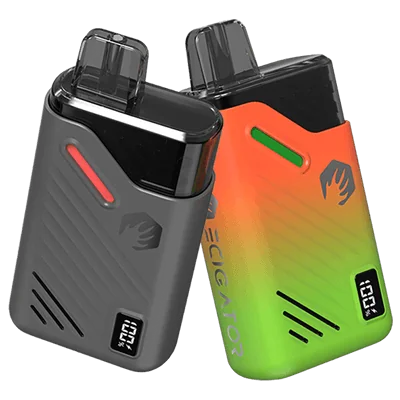
18K Disposable Pod Kit
Disposable Pod Kit – 18ml changeable pod with 650mAh rechargeable battery.
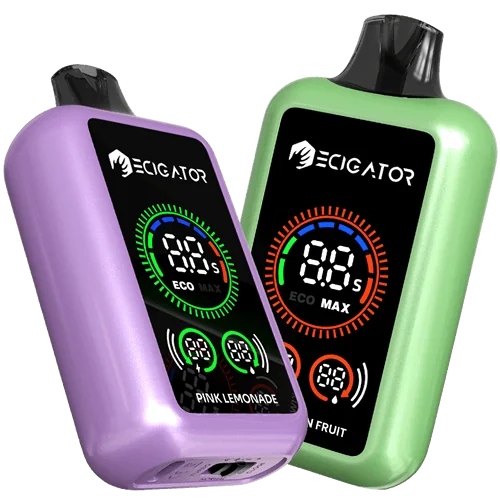
20K with Large Screen
20000 Puffs Disposable Vape with large screen. Normal and Boost working modes.
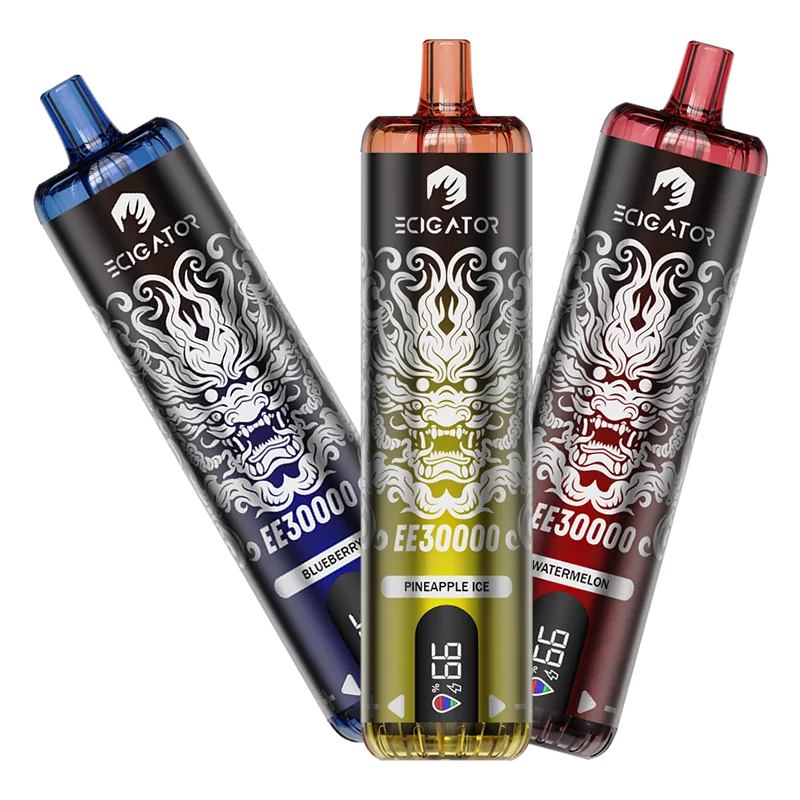
30K DTL Disposable
30K Puffs DTL(Directly to Lung) disposable vape with airflow control and screen.
Hawaii’s Unique Context: Tourism, Public Health, and Environment
Hawaii’s specific characteristics heavily influence its approach to vaping regulation:
- Tourism: As a major tourist destination, Hawaii’s strict laws impact visitors. Tourists must be aware of the age 21 law, the very limited range of legally available products (especially with the crackdown on disposables), and the extensive bans on vaping in public places, particularly beaches and parks.
- Strong Public Health Focus: The state has a deeply ingrained commitment to public health, which drives its proactive and often pioneering stance on tobacco and vape control, with a high level of concern over youth vaping rates. Organizations like Truth Initiative and the American Lung Association often highlight Hawaii’s efforts.
- Environmental Protection: The ban on vaping in state parks and beaches, enforced by the DLNR, is also motivated by environmental concerns, including litter and wildfire risk.
- Recent Enforcement: The Attorney General’s 2025 initiative against illicit disposable vapes is a key local action demonstrating the state’s resolve.
Staying Informed & Future Outlook for Vaping in Hawaii
Hawaii remains at the forefront of strict vaping regulation in the U.S. The legal and market landscape is dynamic, with the proposed comprehensive flavor ban (SB972) being a critical development to monitor. The ongoing tension between the widespread availability of illicit products and the very limited number of FDA-authorized vapes presents a significant challenge. For the most current information, individuals and businesses should regularly consult official sources such as the Hawaii State Department of Health Tobacco Prevention and Control Section and the Office of the Attorney General of Hawaii.
Frequently Asked Questions (FAQs)
-
What is the legal age to vape in Hawaii?
The legal age to purchase, possess, or use any vaping products in Hawaii is 21 years old.
-
Are flavored vapes (e.g., fruit, candy, menthol) legal in Hawaii?
No, Hawaii has banned the sale of all flavored vaping products, including those with menthol flavors, effective 2023. Only specific tobacco-flavored (and potentially unflavored) e-cigarette products authorized by the FDA may be lawfully sold.
-
Can I vape in public parks or on beaches in Hawaii?
No, vaping is prohibited in all Hawaii state parks, which includes many beaches within their jurisdiction. Vaping is also banned in most other outdoor public recreational areas by state or county law.
-
What is the tax on vaping products in Hawaii?
Hawaii imposes a 70% excise tax on the wholesale price of e-cigarettes and e-liquids.
-
Can I order vaping products online and have them shipped to Hawaii?
Shipping tobacco products, including e-cigarettes and e-liquids, to someone in Hawaii who does not possess a valid Hawaii tobacco license is illegal and can lead to criminal penalties.
-
Can I bring my vape to Hawaii when traveling?
Yes, but you must follow TSA guidelines: vapes and batteries must be in your carry-on luggage only. E-liquids in your carry-on must meet standard liquid quantity limits. Be aware that due to the flavor ban and FDA authorization requirements, purchasing many types of vapes (especially flavored or disposable ones) in Hawaii will be illegal.
- Is It Illegal to Vape or Smoke While Driving in Massachusetts? - August 5, 2025
- Austria Plans to Ban Disposable E-Cigarettes - August 5, 2025
- Vaping vs. THC Drinks: Which Cannabis Option Is Right for You? - August 4, 2025

